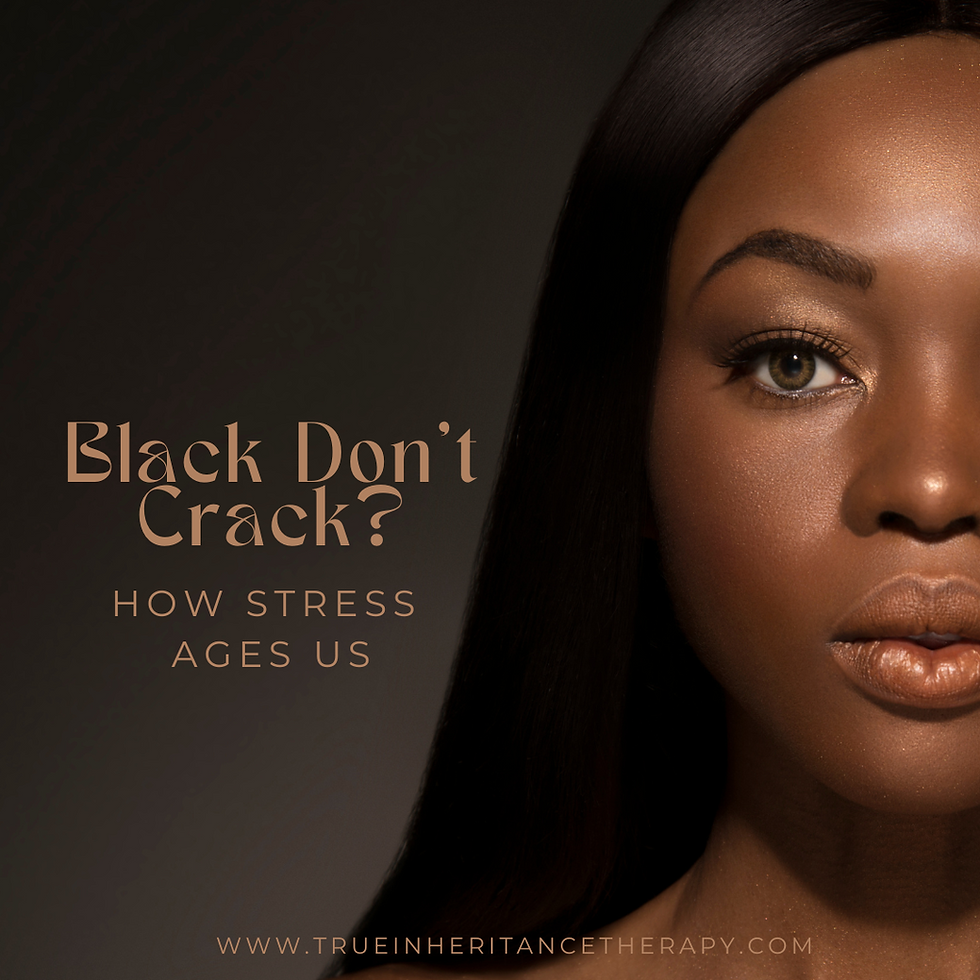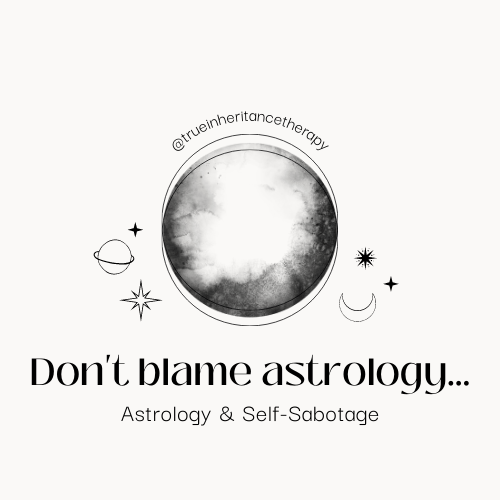Black Don't Crack? How Stress Ages Us
- Jamila Kani
- Feb 15, 2023
- 3 min read

There is truth in the Black proverb, "Black don't crack".
Our melanin is largely to thank for this. Higher levels of melanin provide a host of anti- aging benefits, such as built in sun protection, thicker skin, and natural skin oils, all of which work to prevent the earliest signs of aging skin—fine lines and wrinkles.
However, when we look beneath the surface and examine aging on a deeper level, a different story emerges.
Did you know that your cells age and that your cellular age directly correlates with your health outcomes and overall life expectancy?
Here's a brief biology lesson:
At the ends of each of your chromosomes are stretches of DNA called telomeres.
Telomeres help protect the genetic information of your chromosomes by preventing them from fraying and fusing with nearby chromosomes. Think of plastic tips on the ends of your shoelaces.
Over time, as your cells divide to replace damaged cells with healthy ones, telomeres shorten. When a telomere becomes too short, the cell can no longer divide and thus dies, limiting your body's ability to repair itself. This process is in part what causes aging.
Short telomeres decrease our ability to fight off illness and increase people’s risks of developing diseases, such as heart disease, cancer, stroke, diabetes, and dementia, to name a few.
Shorter telomeres = a shorter lifespan.
Telomeres naturally shorten as we age; however, chronic stress can accelerate telomere shortening.
In a recent study, African Americans who reported experiencing racial discrimination over a 10-year period showed signs of faster cellular aging (marked by shorter telomeres) during that time frame. The study concluded that the stressors caused by accumulating experiences of racial discrimination may result in premature biological aging and a shorter life expectancy among African Americans.
Although the study of telomeres is a new frontier, research suggests that the telomere shortening process can be hacked through diet, exercise, and stress management.
I know, I know.
It feels a bit cringey to discuss individual approaches to counteract the harm imposed by a systematic issue,
but I am also an advocate of focusing on what you can control.
While you cannot single handedly end systematic racism,
you can develop tools and coping mechanisms to better manage and even alleviate stress.
And, even if you don't experience direct racial discrimination on a daily basis, stress is a part of life—juggling multiple jobs at once or just one high stress job, caring for a family while working, managing a chronic illness, getting divorced, moving to a new area—yes, life is full of stress. Learning to manage this stress is essential to your wellbeing.
There are many ways to better manage your stress response—eat nourishing foods, move your body, do mindfulness practices, get enough sleep, engage in fun, pleasurable activities, and, yes,
go to therapy.
Stress and anxiety are what bring most of my clients through my door. Over the course of treatment, I provide knowledge and tools to help clients manage and alleviate their stress and anxiety—this can look like teaching about the body's stress response cycle and how to complete it, practicing cognitive (mental) and somatic (body) calming skills, assessing energy input and output, setting healthy boundaries, creating a schedule for self-care, monitoring eating and sleeping patterns, identifying and altering irrational and negative thought patterns that contribute to stress. . .the possibilities really are endless. The treatment approach is always based on the unique situation and needs of each individual client.
It's true, Black is beautiful,
but beauty is more than skin deep.
When we look at beauty through a holistic lens, it becomes clear that all parts of us contribute to the wellbeing and beauty of our whole selves.
Let’s expand our concept of beauty and put the same amount of effort into caring for the internal as we do the external.
Sources:
Weaver, Amy. "Study finds increasing racism linked to cell aging in African Americans." Auburn University. 13 January 2020,



Comments